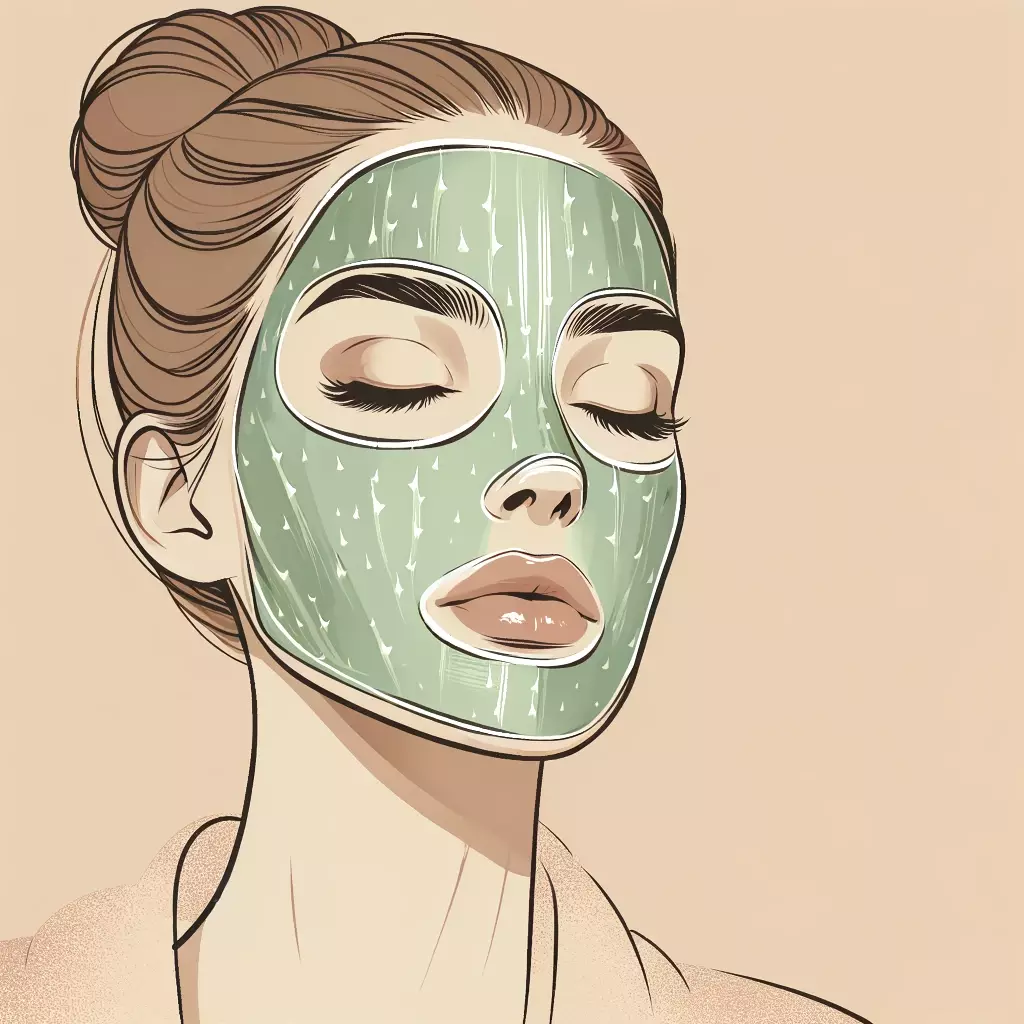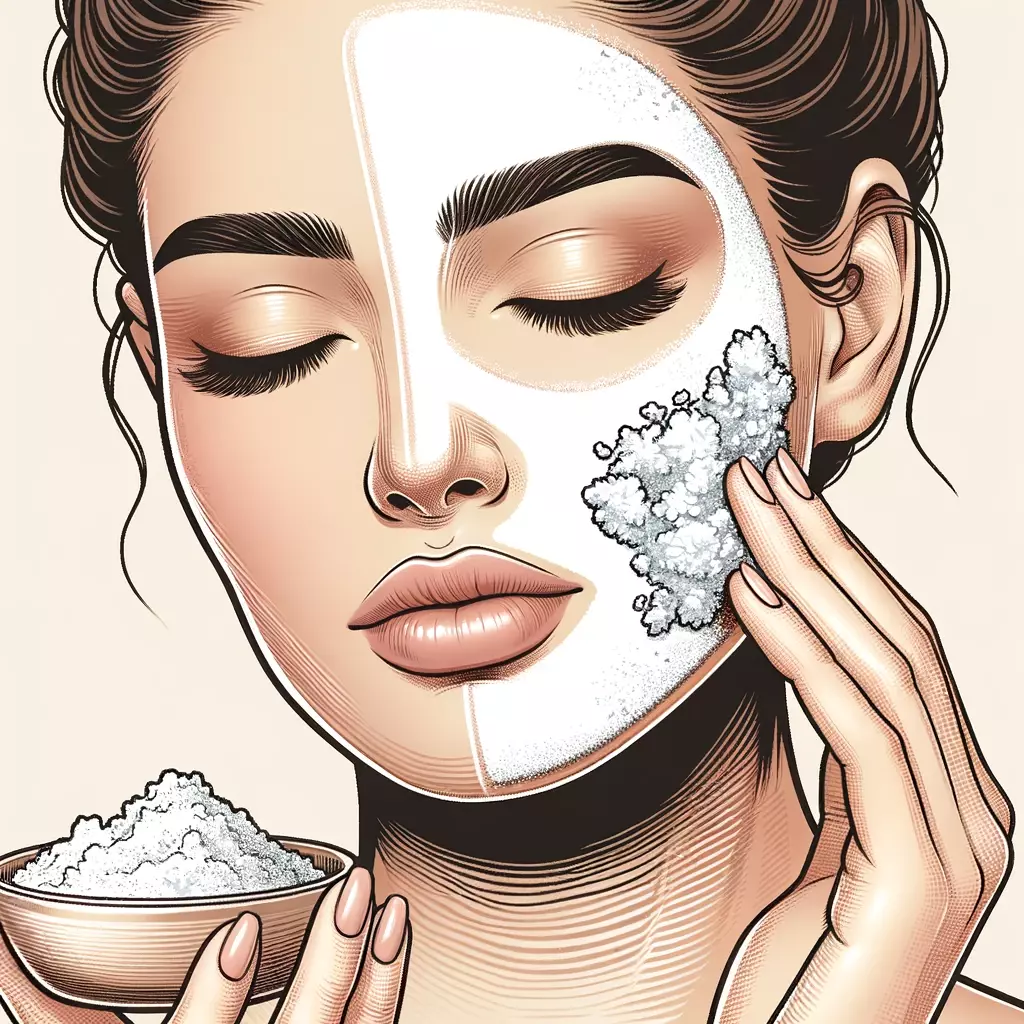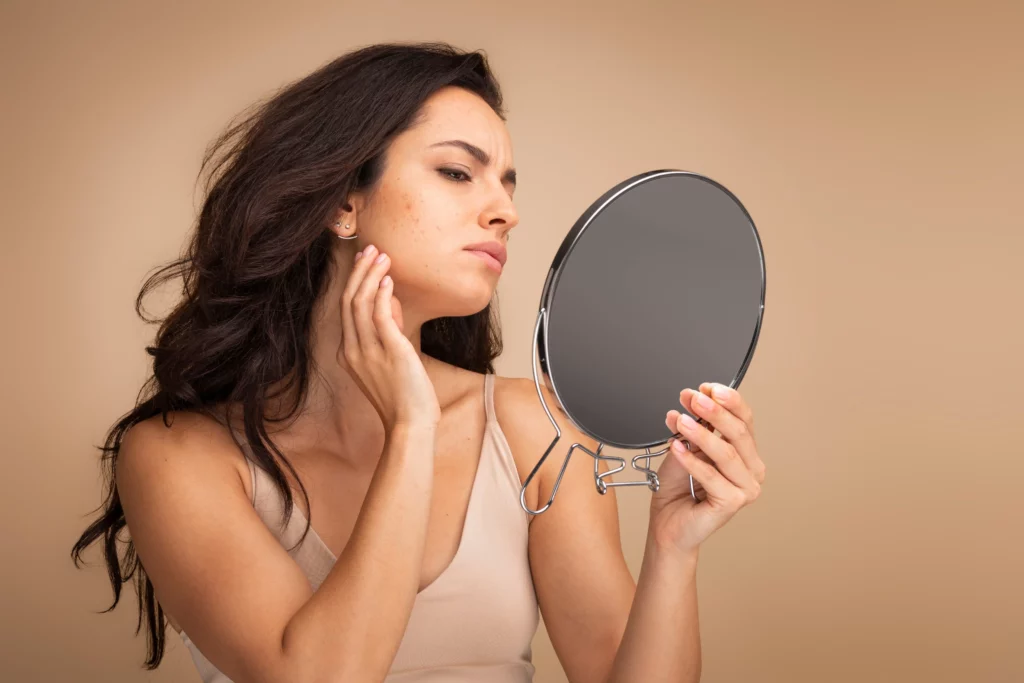How Do I Naturally Get Rid of Acne Scars?
 Home treatments like turmeric powder, coconut oil, tea tree oil, and weak apple cider vinegar can help with this. There are other treatments like lemon juice, Manuka honey, and others that may greatly improve their appearance over time.
Home treatments like turmeric powder, coconut oil, tea tree oil, and weak apple cider vinegar can help with this. There are other treatments like lemon juice, Manuka honey, and others that may greatly improve their appearance over time.
Lemon juice has long been utilized to lessen the appearance of acne scars. This is because the alpha hydroxy acid component of lemon juice has been demonstrated to be beneficial in decreasing scars created by acne, and studies have shown that it is successful in doing so.
When you wake up and see blemishes on your skin that are continual reminders of previous breakouts, it can be disheartening. In this article, we’re going to explore natural treatments that can help you treat acne scars, giving you a boost of self-confidence.
This aim of this article is to provide helpful information on how to remove acne scars naturally and gently. Dealing with acne scars can be challenging as they are persistent and there’s no one-size-fits-all treatment. Depending on your skin type, the severity of scarring, and the type of scar, a combination of different treatments might be needed to enhance your skin’s appearance.
How to Remove Acne Scars with Home Remedies
Acne scars can be difficult to fade, but using natural ingredients may gently improve their appearance over time. Here are some easy home methods to try:
- Alpha hydroxy acid (AHA) liquids: glycolic acid, lactic acid, or lemon juice
- Aloe vera gel
- Honey
- Apple cider vinegar
- Avocado
- Baking soda
- Brown sugar
- Coconut oil
- Cucumber juice
- Egg whites
- Milk
- Strawberries
- Tea tree oil
- Yogurt
- Mortar and pestle
- Soft wash cloth
Method 1 Exfoliate with AHAs to Remove Damaged Skin

Exfoliation is key to scar reduction. By removing the top layer of skin cells, fresh new skin is revealed with improved texture. Alpha hydroxy acids (AHAs) like glycolic acid or lemon juice provide a safe, easy way to exfoliate at home. Try these steps:
- Soak a cotton ball with your choice of AHA liquid – 10% glycolic acid or plain lemon juice work well.
- Gently wipe the acid-soaked cotton ball over cleansed acne scars for 1-2 minutes, concentrating on textured areas. Rinse face.
- Repeat this acid exfoliating process 2-3 times weekly at night before moisturizer.
Expert Tip: Start slowly with AHAs – use maximum twice a week at first as they can be drying. Always follow acid exfoliation with moisturizer.
Method 2 Soothe Skin with Aloe Vera Gel Face Mask

Natural aloe vera has renowned skin-soothing properties while dairy ingredients like milk or yogurt offer additional scar-fading benefits. This cooling, nourishing facial mask combats redness and irritation that often accompanies scarring. Try these steps:
- In a blender, mix 1⁄4 cup aloe vera gel with 2 tablespoons milk and 1 mashed strawberry into a spreadable consistency.
- Apply this face mask over acne scars with a flat foundation brush, avoiding eye area.
- Leave the soothing aloe mask on for 15 minutes then rinse off with warm water.
- Finish with a gentle, non-abrasive cleanser to ensure mask residue is fully removed.
Expert Tip: Refrigerate the aloe vera mask mixture for an extra cooling, soothing effect when applied to irritated skin.
Method 3 Spot Treat Indented Scars with DIY Baking Soda Paste

Dabbing a baking soda paste onto sunken acne scars helps gently lift and fill these indentations by drawing fluid into the tissue. Added antibacterial honey makes this an effective spot treatment to use between exfoliating sessions for more drastic improvement of pitted scarring. Try these steps:
- In a small bowl, make a paste using a few drops water to 1 teaspoon baking soda. Mix in 1⁄2 teaspoon honey.
- Dab paste directly onto sunken acne scars using a cotton swab, pressing gently to fill in marks.
- Leave on 10 minutes, then rinse face with cool water and pat dry. Baking soda helps gently lift scarred tissue.
Expert Tip: Mix the baking soda paste to a smooth, thick consistency – too watery and it won’t adequately fill indented scars.
Method 4 Use Avocado & Honey Healing Mask

Harnessing the nourishing antioxidants in fruit paired with antimicrobial honey makes for an ideal acne scar healing combo. The enzymes naturally found in avocado work to retexturize while the vitamins reduce discoloration along scarred skin for a brighter, more even appearance overall. Try these steps:
- Mash flesh of 1⁄2 avocado fruit till smooth. Then mix in 1 tablespoon honey and 1 teaspoon yogurt.
- Apply this vitamin-rich mask to acne scars. Allow to absorb for 10 minutes before rinsing off.
- The enzymes in avocado and antimicrobial properties of honey will boost skin repair.
- Follow the mask with a hydrating night cream. Do this rejuvenating avocado and honey mask for acne scars 1-2 times a week for best results.
Expert Tip: Allow the avocado mask to sit on skin for up to 20 minutes for maximum nourishing and rejuvenation before rinsing off.
Understanding Acne Scarring
Scars from acne typically remain on the skin for a significant amount of time after the acne has cleared up, serving as a constant reminder of the time when the individual was affected by acne.
Scarring occurs as a result of the natural healing process of the skin, which occurs when acne is severe. If you want to successfully treat acne scars, you need to be aware of the many forms of acne scars and the factors that produce them.
Types of Acne Scars
- Atrophic Scars: These scars look like holes or depressions in the skin. People often call them “boxcar”, “ice-pick” or “rolling scars”. Scars that look like ice picks are deep and narrow, while scars that look like boxcars are more comprehensive and have clear lines. When damage happens below the skin’s surface, rolling scars form.
- Hypertrophic or Keloid Scars: These scars differ from atrophic scars because they are raised when the skin makes too much collagen while it heals. Keloid scars go beyond the area where the acne was and may be itchy or painful.
Causes of Acne Scars
- Inflammation: Severe inflammation, which can happen during acne breakouts, can leave scars. When this inflammation happens, it can hurt the skin and stop it from healing naturally.
- Picking or Popping Pimples: Picking or popping acne lesions may aggravate the inflammation and increase the likelihood of scarring. Scarring can also result from picking or bursting acne blemishes.
- Delay in Treatment: Any delay in treatment may make scars more likely, especially if acne isn’t handled quickly or well. This is very important if this wait happens.
Natural Remedies for Acne Scars
- Aloe Vera: Aloe vera reduces swelling and relaxes skin, which may help remove acne scars.
- Lemon Juice: Lemon juice may irritate delicate skin. Acidic substances can lighten acne scars and level skin tone.
- Honey: Honey’s germ-fighting properties help wounds heal and hide scars.
- Olive Oil: Rich in antioxidants and vitamins, olive oil cleanses and reduces acne scars.
- Rosehip Seed Oil: Vitamins and antioxidants in this oil restore skin and decrease acne scars.
- Baking Soda: Baking soda gently removes dead skin and promotes new skin development, which may reduce acne scars.
- Turmeric Powder: Turmeric powder reduces inflammation and protects the skin. These qualities may prevent acne scars and maintain skin health.
- Apple Cider Vinegar: Acidic apple cider vinegar can level skin pH and reduce acne scars. Never apply it to your skin without diluting it with water.
The Healing Power Of Aloe Vera
Aloe vera is a plant that is often found in kitchen gardens that has healing properties that are hard to ignore. This small green animal has been shown to be very good at reducing redness and helping skin grow back, which makes it a great way to treat acne scars.
That this natural fix works might be because it has aloesin, which is a main ingredient in this medicine along with vitamin E, vitamin C, and amino acids. As a result of its strong ability to fix wounds, this medicine usually works well for healing rolling scars with softer edges.
Keep in mind that if you use it every day, you might not notice a change in the quality of your skin for a while.
Lemon Juice Lightening Technique
When handed lemons by life, consider their potential to reduce acne scars. Packed with vitamin C and citric acid, this citrus fruit is renowned for its natural bleaching properties, effectively diminishing blemishes. Lemon juice’s AHAs (Alpha Hydroxy Acids) aid in skin exfoliation, potentially reducing inflammation owing to their antibacterial traits.
Using a cotton pad and a combination of one tablespoon of water and lemon juice on your face a few times a day before applying your other skin care products might be beneficial. This should be done before you use any other products.
Honey’s Natural Antibacterial Effect
Not only does honey taste good, it can also help heal scars. Additionally, because it can fight redness and germs, it works well for treating acne scars.
Of all the different kinds of honey, Manuka honey is especially good at making acne-related pimples look less noticeable. It kills germs and also helps scars look less noticeable. If you have problems with acne or blackheads on your face, putting a little honey on them might help.
Tea Tree Oil: Nature’s Antiseptic
People have used tea tree oil for hundreds of years as a traditional medicine. It’s better than other medications at killing germs and reducing inflammation. Applying a few drops to your skin and massaging them in will help acne scars appear less visible.
In order to eliminate any residue that may have been left behind, it is recommended that a cotton ball that has been soaked in cold water be applied to the afflicted region for about ten minutes.
Although some components of tea tree oil may be beneficial for the treatment of various sorts of ailments, the oil as a whole is highly beneficial. An example of one of these components is salicylic acid, while others include vitamin E and terpinen-4-ol.
Exfoliating With Baking Soda
Baking soda, a basic household item, may gently exfoliate acne scars. First, mix equal amounts of baking soda and water to produce a paste. Apply the paste to the affected area in circular movements for 1–2 minutes.
Give it 10–15 minutes on the skin, then rinse with warm water. Never over-exfoliate – only once a week, max!
Due to its abrasive texture, this treatment may cause redness, dryness, or irritation in sensitive skin.
Turmeric Powder’s Anti-Inflammatory Benefits
Curcumin is the main ingredient in yellow food turmeric. Curcumin reduces inflammation and protects cells. It reduces facial redness and irritation and stimulates cell growth, removing acne and surgical scars.
To use turmeric for acne scars, simply create a paste by combining turmeric and water. Apply this mixture to the affected areas for best results.
Apple Cider Vinegar For Scar Reduction
Apple cider vinegar can be used for more than just salad sauces. Its qualities can help fade acne scars and reduce redness. While there isn’t ample scientific evidence confirming its effectiveness on scars, it’s possible that succinic acid could have a role to play.
Before putting the vinegar directly on your skin, you must mix it with water to avoid possible irritation or burns from pure ACV.
The Nourishing Effects Of Olive Oil
Olive oil, often used in Mediterranean cooking, is great for your skin. It has stuff in it that helps fix damaged skin and makes acne scars less noticeable. Gently massaging a small amount of olive oil into the scarred areas can significantly aid in their fading.
Olive oil contains active components that aid in the restoration of skin cells, thereby reducing the visibility of scars on your face or body over time. Using olive oil regularly can help your skin recover from breakouts and keep it hydrated and smooth.
Rosehip Seed Oil For Skin Renewal
We end our list of natural remedies with rosehip seed oil, which has fatty acids and vitamin A that can help reduce the appearance of acne scars. These essential oils effectively support skin renewal due to their linoleic acid, alpha-linolenic acid and oleic acid components for regeneration. It’s an imperative part of creating new cells on your skin and improving its texture and overall look.
For effective use of this remedy, first ensure your face is thoroughly cleansed. Then, while your skin is still damp from washing, apply a few drops of Rosehip Seed Oil. Gently massage this into the scarred areas, allowing it to fully absorb. Repeat this process twice daily – once in the morning and once at night, for optimal results!
The Last Word
Ultimately, acne scars can be a source of intense dissatisfaction and cause self-confidence issues. Various natural treatments may help in lightening their look. Incorporating these strategies into your daily skincare regimen will set the stage for a clearer and smoother skin texture. While these remedies offer promising results, patience and consistent application are critical.
Caution is advised for sensitive skin, as specific remedies may irritate. Incorporating these natural remedies into a daily skincare routine may gradually diminish acne scars, promoting skin renewal and improving overall complexion.



